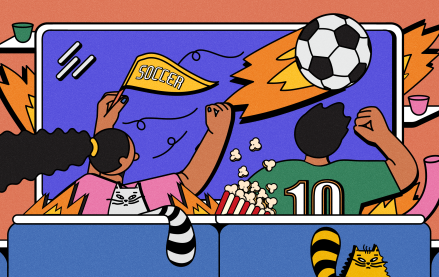
The first time Joy Howard had a focus group full of millennials, she knew it was going to be her last one.
“I knew it was over,” Howard, the chief marketing officer at Sonos, said on a panel at Advertising Week about targeting millennials.
Howard, who used to work for Patagonia and Converse and led some of the content-heavy advertising there, said that her approach on marketing has had to evolve as she started focusing on millennials.
For Sonos, the big difference between millennials and Gen X can be summed up in one image: The Nirvana album cover featuring a baby swimming toward a dollar. “The idealism of Gen X is so different from the cynicism of millennials,” said Howard. “For millennials, the marketing is native.”
The first time Howard held a focus group with millennials, it didn’t work. “We couldn’t get them to start talking about themselves, their hopes, what they wanted,” she said. “They could not not see the marketing.”
Any strategy that is aimed at millennials had to head on, said Howard, who told Digiday that she now relies on instinct. And that hasn’t failed her, at least not yet, she said. “The only time I’ve made a mistake is when I’ve relied too much on personal instinct instead of brand instinct,” she said. “So it’s not about likes and dislikes for me, but for my brand.”
Other panelists were Alan Schanzer, who heads advertiser development at Pandora; Jon Potter, CMO at Moet Hennessy; and Carolyn Baird, who leads global research at IBM. Except for Schanzer, all said that marketing to millennials doesn’t call for complete overhaul of strategy. It’s not an revolution but an evolution.
For Potter, that evolution has been about letting go of control because millennials prefer experiences over advertising — and you can’t control experiences. “We just can’t run our brands the way we used to.” And Baird said that while all brands have to keep in mind how many millennials there are, a laser-focus on millennials isn’t the only way to go. “This is a cultural change everyone is involved in,” she said. “Show me a 40-year-old who is not addicted to their mobile phone.”
Image courtesy of Shutterstock.
More in Marketing

Ahead of Euro 2024 soccer tournament, brands look beyond TV to stretch their budgets
Media experts share which channels marketers are prioritizing at this summer’s Euro 2024 soccer tournament and the Olympic Games.

Google’s third-party cookie saga: theories, hot takes and controversies unveiled
Digiday has gathered up some of the juiciest theories and added a bit of extra context for good measure.

X’s latest brand safety snafu keeps advertisers at bay
For all X has done to try and make advertisers believe it’s a platform that’s safe for brands, advertisers remain unconvinced, and the latest headlines don’t help.






